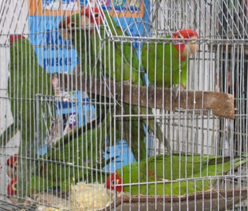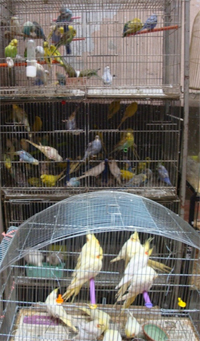 Financial contributions made to this fund will be used to investigate illegal wildlife trade in Latin America, with the aim to promote practical solutions to alleviate animal-welfare and conservation threats caused by the trade. It is only when we have a better understanding of the drivers and dynamics of, and alternatives to, illegal wildlife trade that we can help design targeted interventions, including educational outreach and law enforcement activities.
Financial contributions made to this fund will be used to investigate illegal wildlife trade in Latin America, with the aim to promote practical solutions to alleviate animal-welfare and conservation threats caused by the trade. It is only when we have a better understanding of the drivers and dynamics of, and alternatives to, illegal wildlife trade that we can help design targeted interventions, including educational outreach and law enforcement activities.
The Initiative
Illegal trade is a serious conservation threat affecting many wildlife populations. Wild parrots are an unfortunate, yet typical, example of a family heavily exploited for the pet market throughout their global distribution. Although international treaties and importation bans have decreased trade internationally, illegal domestic trade of parrots and other wildlife species continues at alarming rates worldwide.
 Dr. Elizabeth Daut, a PhD student in the Schubot Center, is investigating the social and economic motivations driving illegal trade and the impact trade may have on the health of wildlife, particularly parrot, populations in Peru.
Dr. Elizabeth Daut, a PhD student in the Schubot Center, is investigating the social and economic motivations driving illegal trade and the impact trade may have on the health of wildlife, particularly parrot, populations in Peru.
Specific research areas include:
- Analyzing the structure and operation of the Peruvian parrot trade from rural harvester to urban consumer, including a national household survey concerning wildlife in captivity and attitudes toward wildlife.
- Calculating the risk of infectious diseases being introduced to wild parrot populations from released or escaped individuals that were infected during processing along the illegal trade system.
- Evaluating the impact of Peruvian aviculturists on the pet bird market and the role exotic pet parrots have in parrot conservation
- Assessing the management options for parrots and other wildlife confiscated by Peruvian authorities and rescue centers throughout the country.
